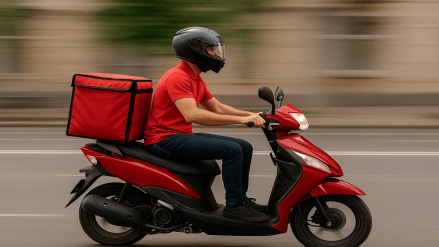The quick commerce sector is struggling to maintain its core objective of 10-minute deliveries as a shortage of delivery partners is constraining operations. Industry sources say delays are becoming common across platforms due to staffing issues, even as demand and dark store numbers continue to grow rapidly.
The shortfall is not due to inventory or consumer demand, but rather the limited availability of gig-based delivery riders. Delivery timelines are being quietly adjusted as companies try to navigate growing gaps between their fleet strength and store expansion plans.
According to Sachin Alug, CEO of staffing firm NLB Services, the sector currently employs around 400,000 delivery partners nationwide. However, the ratio of delivery partners to dark stores has dropped to 3:1, a decline from earlier years. “Quick commerce platforms are facing a serious delivery partner crunch,” said Kartik Narayan, CEO of general staffing at TeamLease. “Demand is growing fast with new stores opening, but fleet capacity isn’t keeping up,” he said.
Companies like Blinkit, Zepto, and Swiggy Instamart each operate about 1,000 dark stores, while Flipkart Minutes plans to expand from 400 to 800 stores. This infrastructure growth is outpacing the supply of riders, creating service bottlenecks.
In the March quarter, Blinkit had 185,000 riders for 141.7 million orders. Swiggy, across food and quick commerce, reported 539,000 monthly active delivery partners, fulfilling 88.6 million Instamart orders.
The shortage is particularly visible in tier-1 cities. Alug noted that while rider numbers are high in these areas, so is the competition for talent. “New markets are relatively easier to enter, but the big cities remain under strain,” he said.
Narayan pointed to one Bengaluru store handling 1,500 orders daily while being persistently under-staffed. Despite increased hiring and fleet expansion, attrition rates of 35–40% are making it difficult to maintain adequate staffing levels.
Average delivery partner earnings have risen from Rs 21,000 in FY21 to Rs 28,000 in FY25, according to TeamLease. But these increases are adding pressure on margins in a sector still heavily reliant on investor funding.
Industry analysts say companies will need to balance compensation, hiring, and service expectations. Without sufficient delivery staffing, the quick commerce sector may find its speed advantage increasingly difficult to sustain.
